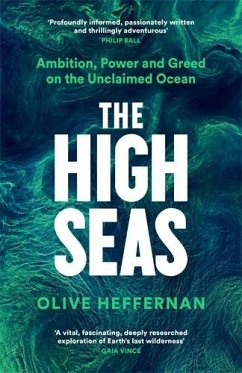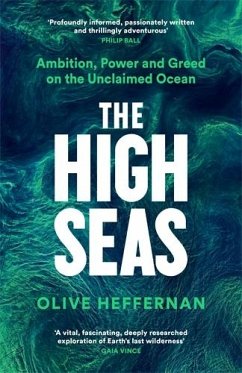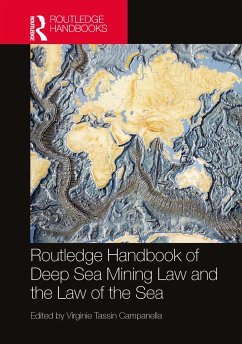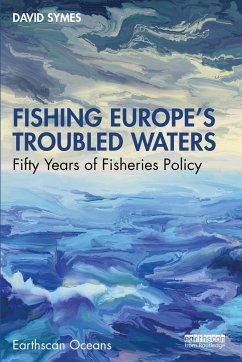
Laws of the Sea
Interdisciplinary Currents
Herausgegeben: Braverman, Irus
Versandkostenfrei!
Versandfertig in 6-10 Tagen
42,99 €
inkl. MwSt.

PAYBACK Punkte
21 °P sammeln!
Laws of the Sea assembles scholars from law, geography, anthropology, and environmental humanities to consider the possibilities of a critical ocean approach in legal studies.Unlike the United Nations' monumental Convention on the Law of the Sea, which imagines one comprehensive constitutional framework for governing the ocean, Laws of the Sea approaches oceanic law in plural and dynamic ways. Critically engaging contemporary concerns about the fate of the ocean, the collection's twelve chapters range from hydrothermal vents through the continental shelf and marine genetic resources to coastal...
Laws of the Sea assembles scholars from law, geography, anthropology, and environmental humanities to consider the possibilities of a critical ocean approach in legal studies.
Unlike the United Nations' monumental Convention on the Law of the Sea, which imagines one comprehensive constitutional framework for governing the ocean, Laws of the Sea approaches oceanic law in plural and dynamic ways. Critically engaging contemporary concerns about the fate of the ocean, the collection's twelve chapters range from hydrothermal vents through the continental shelf and marine genetic resources to coastal communities in France, Sweden, Florida, and Indonesia. Documenting the longstanding binary of land and sea, the chapters pose a fundamental challenge to European law's "terracentrism" and its pervasive influence on juridical modes of knowing and making the world. Together, the chapters ask: is contemporary Eurocentric law-and international law in particular-capable of moving away from its capitalist and colonial legacies, established through myriad oceanic abstractions and classifications, toward more amphibious legalities?
Laws of the Sea will appeal to legal scholars, geographers, anthropologists, cultural and political theorists, as well as scholars in the environmental humanities, political ecology, ocean studies, and animal studies.
The Open Access version of this book, available at http://www.taylorfrancis.com, has been made available under a Creative Commons Attribution-Non Commercial-No Derivatives (CC-BY-NC-ND) 4.0 license.
Unlike the United Nations' monumental Convention on the Law of the Sea, which imagines one comprehensive constitutional framework for governing the ocean, Laws of the Sea approaches oceanic law in plural and dynamic ways. Critically engaging contemporary concerns about the fate of the ocean, the collection's twelve chapters range from hydrothermal vents through the continental shelf and marine genetic resources to coastal communities in France, Sweden, Florida, and Indonesia. Documenting the longstanding binary of land and sea, the chapters pose a fundamental challenge to European law's "terracentrism" and its pervasive influence on juridical modes of knowing and making the world. Together, the chapters ask: is contemporary Eurocentric law-and international law in particular-capable of moving away from its capitalist and colonial legacies, established through myriad oceanic abstractions and classifications, toward more amphibious legalities?
Laws of the Sea will appeal to legal scholars, geographers, anthropologists, cultural and political theorists, as well as scholars in the environmental humanities, political ecology, ocean studies, and animal studies.
The Open Access version of this book, available at http://www.taylorfrancis.com, has been made available under a Creative Commons Attribution-Non Commercial-No Derivatives (CC-BY-NC-ND) 4.0 license.














